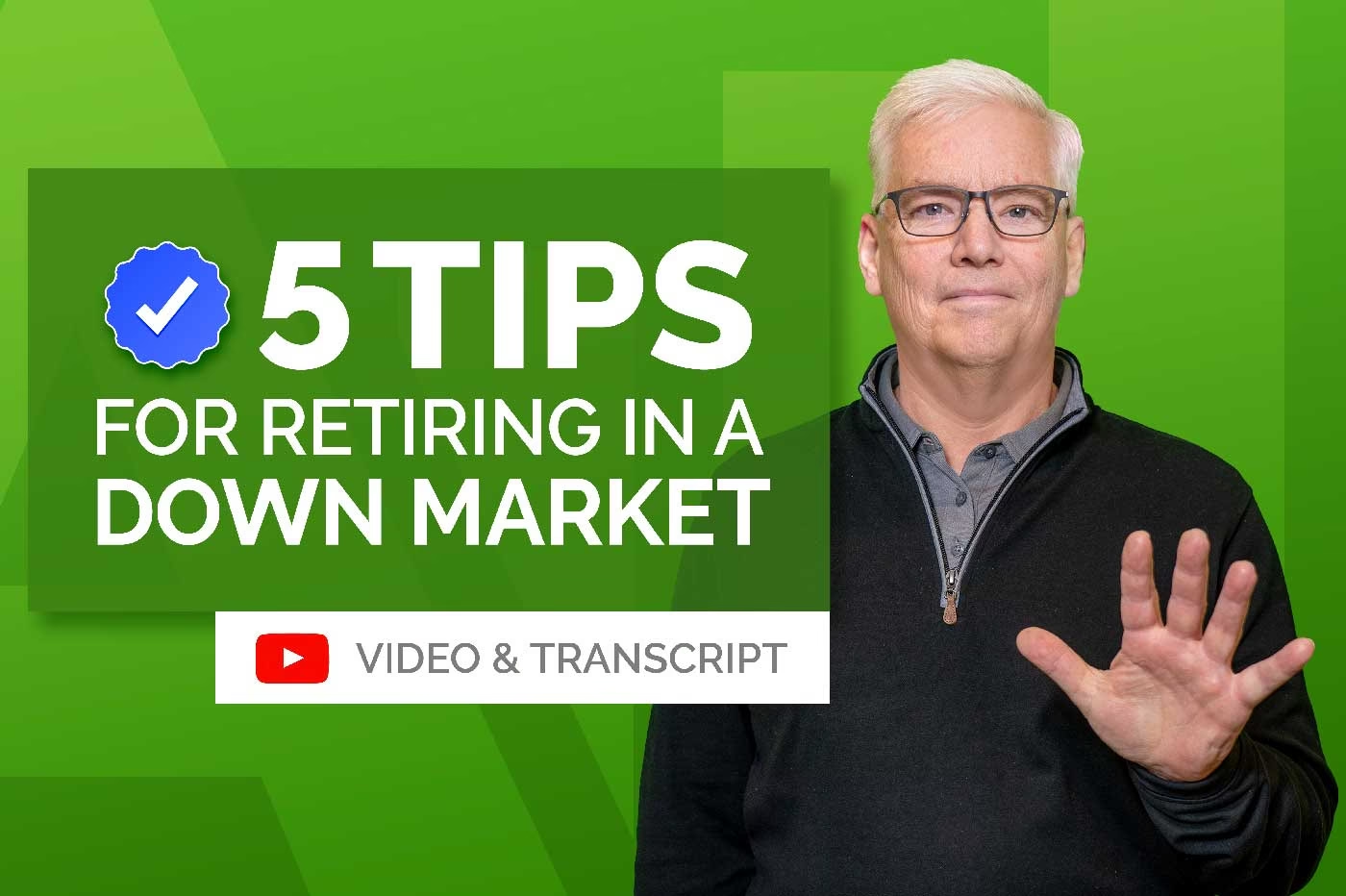Table of Contents
Facing Retirement in a Rough Market?
Retiring is a major life milestone. Doing it during a market downturn? That can make things even more stressful.
But it doesn’t have to be. With the right strategies, you can retire with confidence—even when your portfolio’s taken a hit.
Here are five practical tips to help you manage the early years of retirement in a challenging market.
1. Build—and Use—Your Cash Reserve
This is number one for a reason: cash gives you breathing room.
When markets get volatile, you don’t want to be forced to sell investments at a loss just to cover everyday expenses. Having a healthy cash reserve—enough to cover 12–18 months of living expenses—gives you the flexibility to ride out market swings.
Lean into that reserve. That’s what it’s there for.
2. Use a Guardrails Approach to Spending
One strategy we love is the guardrails approach: spend more when markets are up, and tighten the belt a little when markets are down.
It’s a simple but effective way to adapt your lifestyle to the performance of your investments. And it can significantly improve your chances of long-term financial success in retirement.
3. Delay Large Withdrawals (If You Can)
Early in retirement, it’s wise to delay big expenses—especially during market downturns.
Think of your first year or two as a transition phase. Stick to covering essentials and avoid major withdrawals like home renovations, new cars, or big travel plans until you’ve had time to settle in and markets begin to recover.
4. Phase Into Retirement, Don’t Leap
Retirement doesn’t have to be all-or-nothing. If possible, consider phasing out of work gradually rather than stopping abruptly.
A part-time job, consulting, or even just staying on a few extra months can soften the financial impact—and ease the emotional adjustment. Retirement is a big shift, and easing into it can help both your mindset and your money.
5. Consider a Roth Conversion
Here’s a tip that many overlook: if you’re in a low-income year due to retiring, and the market is down, it may be a great time to do a Roth conversion.
You’ll pay tax on the amount you convert, but if your portfolio is temporarily down in value, you’ll move those assets into a Roth at a discounted tax cost—and they’ll grow tax-free going forward.
The Bottom Line
Retiring in a down market isn’t ideal—but it’s far from impossible. With enough cash, a flexible spending plan, and smart timing on withdrawals and conversions, you can still set yourself up for a confident and secure retirement.
The key is to stay calm, plan intentionally, and be willing to adapt.


